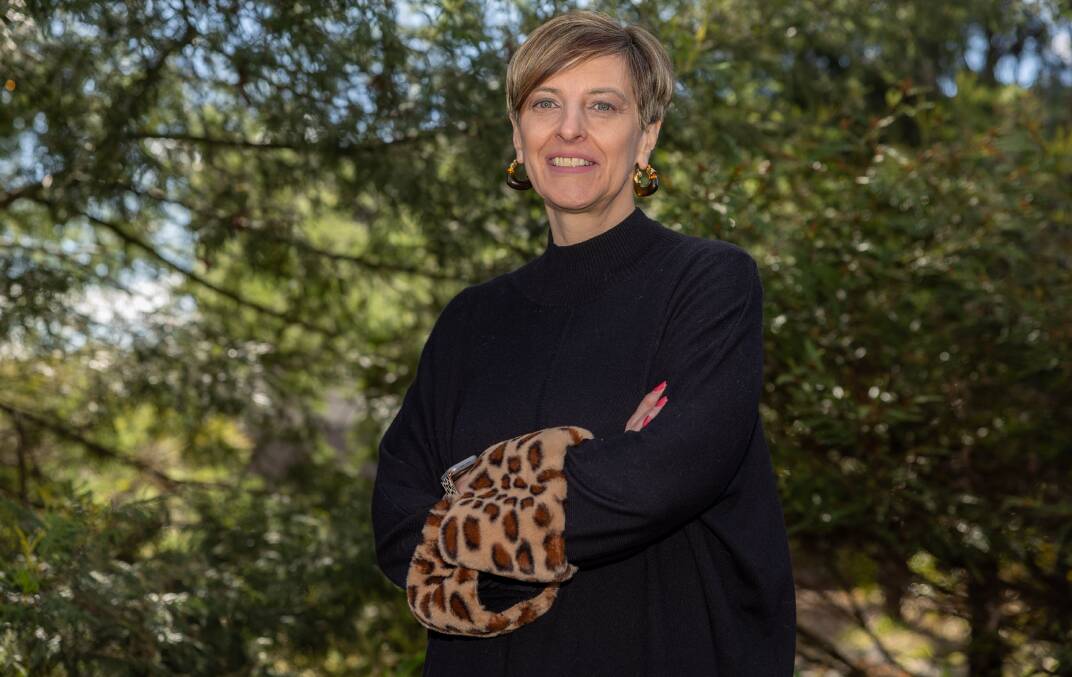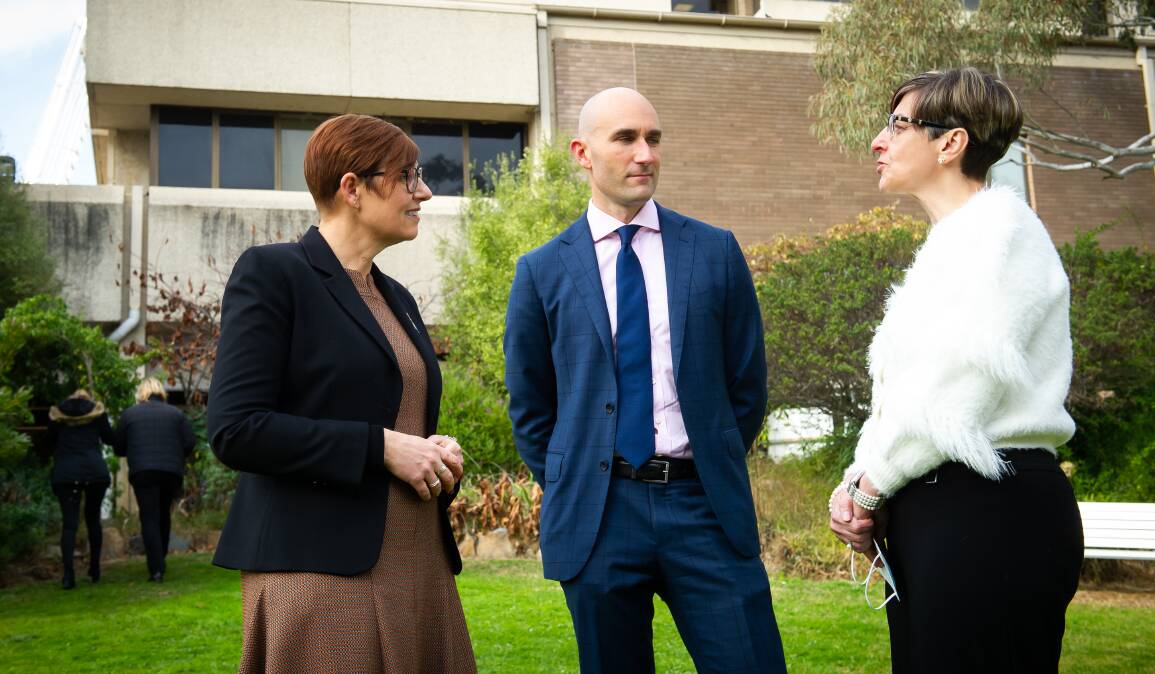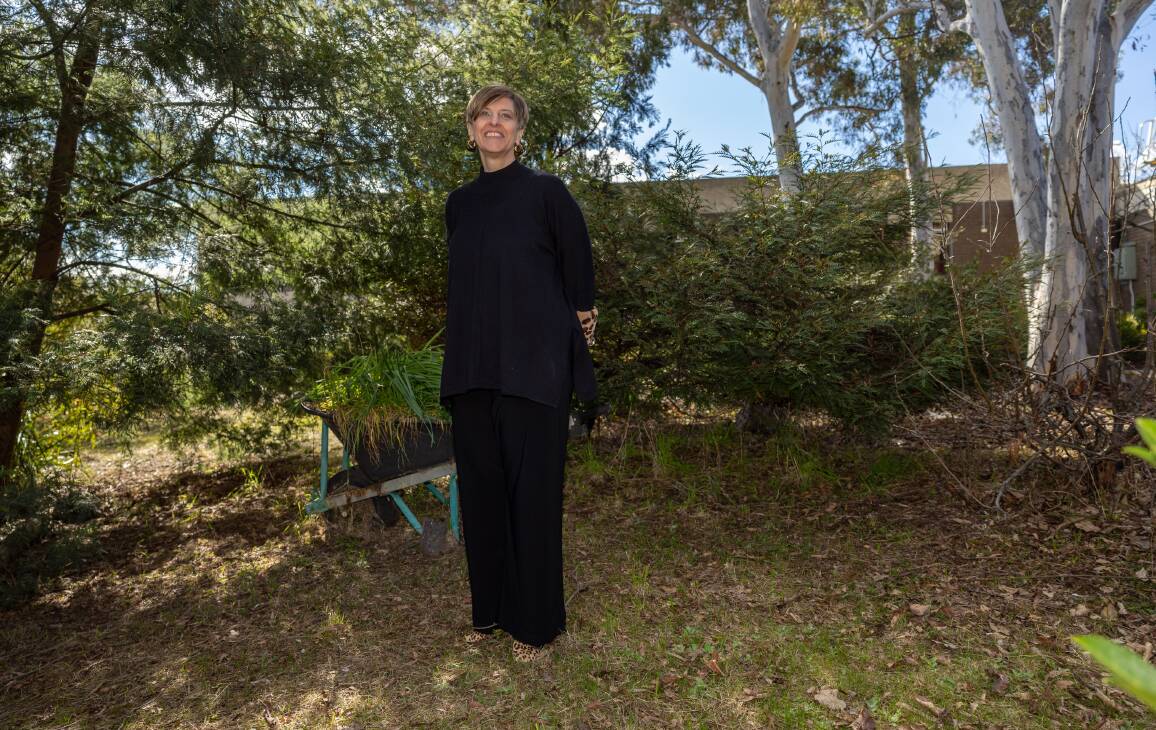A few months ago it was the most talked about hospital in the country.
The ACT government's forcible acquisition of Calvary Public Hospital Bruce faced a significant backlash. There was a national campaign, spearheaded by the Catholic church, against the move which was seen by some as "totalitarian".
Federal politicians, including Prime Minister Anthony Albanese and Opposition Leader Peter Dutton, both entered the debate with the former supporting the move and the latter condemning it.
Some staff were left reeling at the government's decision and there were calls from the Australian Medical Association for a longer time frame for the transition.
There was also a legal battle.
But amid all the turmoil and political circumstances around the move, the hospital has continued its core business, that is, patient care.
It's been nearly two months since the government officially took control of the hospital, now called North Canberra Hospital, and it's been largely business as usual for frontline health workers.

Behind the scenes, as the excitement and chaos from the transition dwindles, the hospital's bosses are busying themselves with the tedious but incredibly important tasks. The hospital's general manager, Elaine Pretorius, said they have hit the "hard slog".
These tasks include transferring contracts from Calvary to Canberra Health Services, changing finance systems, getting new email addresses for everyone and becoming familiar with the new legislative requirements such as procurement rules.
"People forget all those little bits that make our health care system work," Dr Pretorius said.
"This part of it is really a hard slog, I'd hope our clinical staff don't know about all of the things happening behind the scenes but I think it's really important that we do that well because that's setting us up for the future and once all of those tasks have been ticked off then we can start thinking about all the advantages from a clinical point of view of being part of Canberra Health Services."
'Continuity and stability'
Dr Pretorius was employed directly by Calvary and was not eligible for an automatic transition as part of the government's legislation but she was kept on board, along with the rest of the Bruce hospital's executive team, however, the hospital's former general manager did not transition.
She fought for the executive team to stay in place to ensure continuity for staff and it was this tenacity which likely saw her chosen to be the general manager.
"I had a long conversation with [Canberra Health Services chief executive] Dave Peffer and it was really important that our executive team stayed in place to provide some continuity and stability but also because we know the ins and outs of the place," she said.
"How I became general manager, well, you know, sometimes the outspoken one is standing at the front but for all of us it is filled with new challenges and all of us who are in healthcare to make a difference will grasp those opportunities to be part of something new and exciting."
The final number of staff who transferred to Canberra Health Services was 2059. Pre-transition Calvary had estimated the number of total staff to be 1800.
There were 90 people who chose to resign or retire, or stay at Calvary but only work in the remaining private hospitals in Canberra. There were 46 people who took a redundancy.

Dr Pretorius has only worked at the hospital for seven months. She moved to Canberra from South Australia and was the executive director of medical services at Calvary Public Hospital Bruce, prior to the transition. She is a doctor: a general physician and endocrinologist.
"I'm a politics tragic. Being here in Canberra, every morning when I drive past Parliament there's just still this little thrill. I went to question time," she said.
Some staff expressed despair of being taken over by Canberra Health Services due to well-known cultural issues at Canberra Hospital. Calvary has also experienced similar issues. But Calvary is a smaller hospital, and that is clearly important to staff.
"Culture is more than a name above our door. It is about our people and the way we deliver care and the way we care for our patients," Dr Pretorius said.
"There are some advantages to being the smaller place because it does feel a little bit more like a family. We know each other, there's always people in the corridor so there's a really friendly welcoming atmosphere."
'Still the same people'
Prior to the transition, employees at the Bruce hospital were told there would be no major changes in the first year.
Dr Pretorius said only one person at the hospital reports to a new boss and that's her.
"For me it's really important that people understand that our people delivering the care are still the same people, the only person who has had a change in their reporting line is me, the structures within the hospital have remained exactly the same," she said.
"The line managers and the teams have remained the same, our executive have all stayed which is lovely because they are a remarkable team and so the only person who is now reporting into the wider CHS structure is me.
"We have largely been left to ourselves."

There will eventually be changes though and Dr Pretorius said she wants to ensure staff voices are heard.
"World cafe" meetings will be held over the coming months so staff can come together and discuss what they want retained at the hospital.
"We want to document what we want to claim and continue to claim and so when we're developing the new hospital, when we're talking about cross-territory services we're very clear about our non-negotiable bits," Dr Pretorius said.
"Change is something that happens to you. Transition is the psychological adaptation to that big change and so the change has happened to us, now we need to allow the transition to start happening."
But despite the massive change, Dr Pretorius said staff have shown enormous resilience and have probably faced greater challenges over recent years.
"Calvary has had a tough time in the last two years. There was an executive spill, COVID, the theatre fires and then this acquisition," she said.
"Healthcare workers are ultimately pretty pragmatic people and they are here to provide care and service to our patients and community.
"We've been through COVID. I think if you've survived COVID you can survive most things.
"I have not a single moment's doubt about our staff's commitment and dedication to this place."







